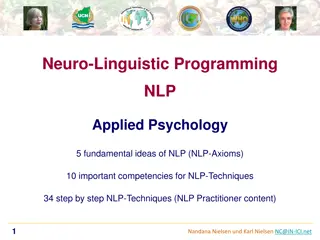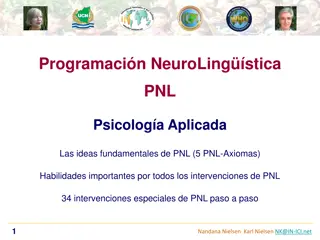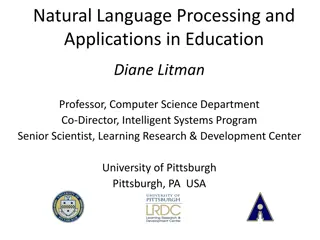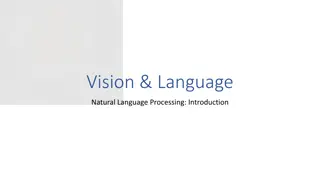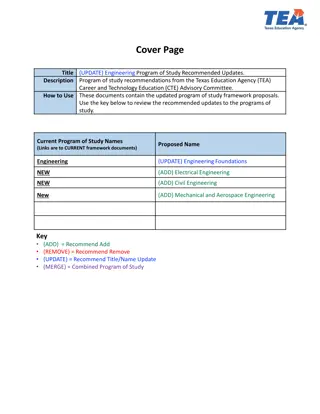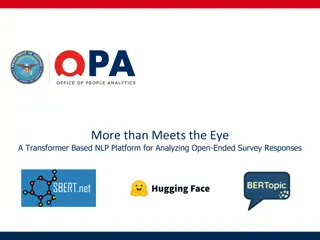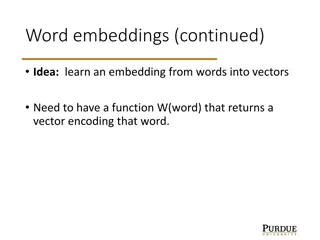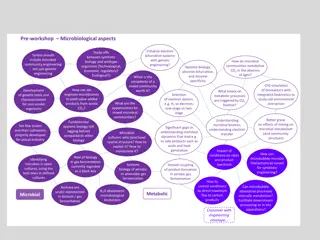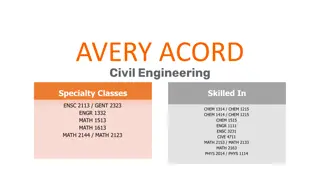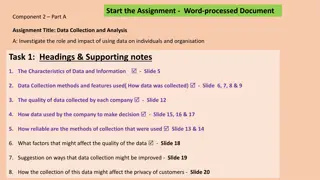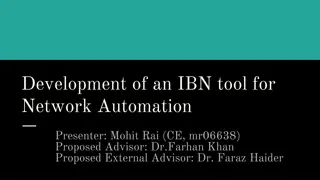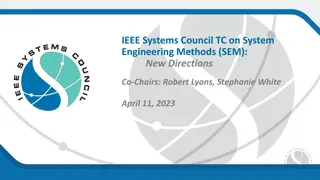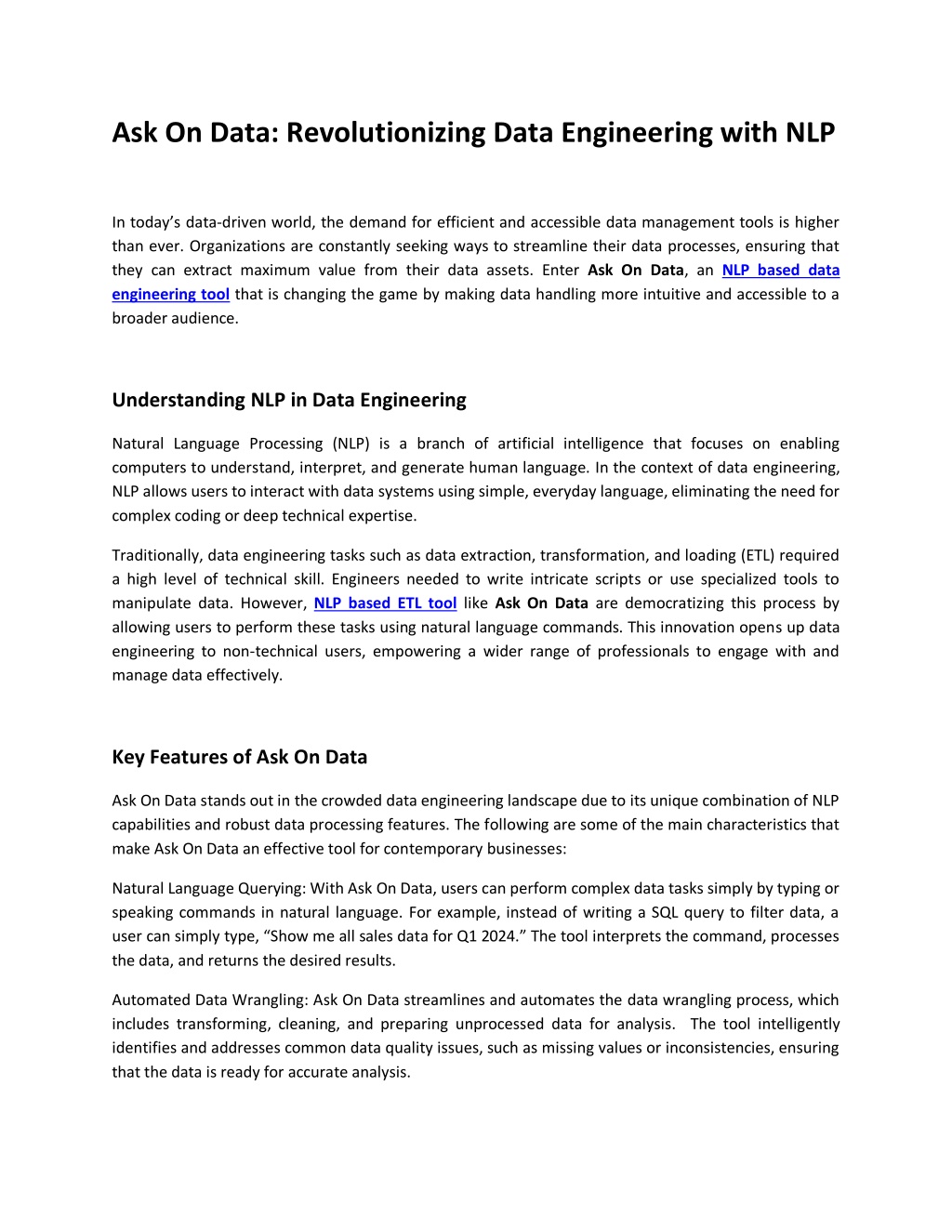
Revolutionizing Data Engineering with NLP
Ask On Data, an NLP based data engineering tool that is changing the game by making data handling more intuitive and accessible to a broader audience.
Download Presentation

Please find below an Image/Link to download the presentation.
The content on the website is provided AS IS for your information and personal use only. It may not be sold, licensed, or shared on other websites without obtaining consent from the author. Download presentation by click this link. If you encounter any issues during the download, it is possible that the publisher has removed the file from their server.
E N D
Presentation Transcript
Ask On Data: Revolutionizing Data Engineering with NLP In today s data-driven world, the demand for efficient and accessible data management tools is higher than ever. Organizations are constantly seeking ways to streamline their data processes, ensuring that they can extract maximum value from their data assets. Enter Ask On Data, an NLP based data engineering tool that is changing the game by making data handling more intuitive and accessible to a broader audience. Understanding NLP in Data Engineering Natural Language Processing (NLP) is a branch of artificial intelligence that focuses on enabling computers to understand, interpret, and generate human language. In the context of data engineering, NLP allows users to interact with data systems using simple, everyday language, eliminating the need for complex coding or deep technical expertise. Traditionally, data engineering tasks such as data extraction, transformation, and loading (ETL) required a high level of technical skill. Engineers needed to write intricate scripts or use specialized tools to manipulate data. However, NLP based ETL tool like Ask On Data are democratizing this process by allowing users to perform these tasks using natural language commands. This innovation opens up data engineering to non-technical users, empowering a wider range of professionals to engage with and manage data effectively. Key Features of Ask On Data Ask On Data stands out in the crowded data engineering landscape due to its unique combination of NLP capabilities and robust data processing features. The following are some of the main characteristics that make Ask On Data an effective tool for contemporary businesses: Natural Language Querying: With Ask On Data, users can perform complex data tasks simply by typing or speaking commands in natural language. For example, instead of writing a SQL query to filter data, a user can simply type, Show me all sales data for Q1 2024. The tool interprets the command, processes the data, and returns the desired results. Automated Data Wrangling: Ask On Data streamlines and automates the data wrangling process, which includes transforming, cleaning, and preparing unprocessed data for analysis. The tool intelligently identifies and addresses common data quality issues, such as missing values or inconsistencies, ensuring that the data is ready for accurate analysis.
Seamless Integration: Ask On Data easily integrates with various data sources and platforms, including databases, cloud storage, and data lakes. This flexibility ensures that users can connect to and manage their data regardless of where it resides. Scalability and Performance: Built to handle large volumes of data, Ask On Data scales with the needs of an organization. Whether dealing with small datasets or massive data lakes, the tool ensures fast and efficient processing. User-Friendly Interface: The tool s intuitive interface makes it easy for users of all skill levels to navigate and perform data engineering tasks. The combination of NLP and a visual interface reduces the learning curve, allowing users to become productive quickly. Benefits of Using Ask On Data The advantages of adopting Ask On Data as a data engineering tool are numerous, making it a valuable asset for organizations aiming to optimize their data workflows. Increased Productivity: By simplifying data engineering tasks, Ask On Data significantly reduces the time and effort required to manage and prepare data. Users can focus on analysis and decision-making rather than spending hours on data cleaning and transformation. Accessibility for Non-Technical Users: The NLP capabilities of Ask On Data make data engineering accessible to non-technical users. Business analysts, marketers, and other professionals can engage directly with data, leading to faster insights and better collaboration across teams. Improved Data Quality: Automated data wrangling ensures that data is consistently clean and accurate, reducing the risk of errors in analysis and reporting. Cost-Effective: By reducing the reliance on specialized data engineers and simplifying the data process, Ask On Data can help organizations lower their operational costs. Conclusion Ask On Data is transforming the data engineering landscape by making it more accessible, efficient, and user-friendly. Its innovative use of NLP allows users to engage with data in a natural and intuitive way, breaking down barriers to data-driven decision-making. As organizations continue to seek out tools that empower their teams and streamline their processes, Ask On Data stands out as a leading solution in the world of data engineering.

